Modern Parenting Is Evolving—But Are We Getting It Right?

If you’re a parent today, you’ve probably read countless tips, swiped through dozens of expert reels, and maybe even followed a few parenting influencers. In this digital age, advice is everywhere—but not all of it is sound. While some modern parenting methods are rooted in love and intention, others may unintentionally hurt more than they help.
Experts in child development are speaking up. And according to them, some of the most popular parenting styles might be setting kids—and parents—up for more stress, less resilience, and confusion down the line.
Video: Reality of Strict Parents 🙂💔
Let’s look at seven trendy parenting habits that may deserve a serious second look.
Sharenting: When Cute Posts Turn Into Lifelong Digital Trails
We’ve all seen it—or done it. That adorable post of your toddler eating spaghetti, the first day of school shot, the meltdown-in-the-store moment that felt too funny not to share.
It’s called “sharenting,” and while it may seem harmless, experts are warning about long-term consequences.

Children can’t consent to having their lives shared publicly. These photos and stories form a digital footprint that could follow them into adulthood—potentially affecting their privacy, safety, and self-image.
Before hitting “post,” ask yourself: Would my future 16-year-old thank me for this memory being online?
Gentle Parenting: Beautiful in Theory, Exhausting in Practice
Gentle parenting focuses on understanding, empathy, and emotional connection. And yes, it can foster strong relationships when done well.
But here’s the catch: it often sets the bar at perfection.

Parents are told to stay calm, patient, and endlessly validating—even during a toddler tantrum in traffic or a sibling fight at bedtime. It’s not always practical. In fact, some parents feel burned out trying to avoid every form of discipline.
Experts suggest blending gentle parenting with healthy boundaries. Kids still need limits, consequences, and structure to thrive. And parents need the freedom to be human, not saints.
Helicopter Parenting: Love That Squeezes Too Tight
Hovering over every test, every playground scuffle, and every decision may feel like love—but experts say helicopter parenting can actually stunt emotional growth.
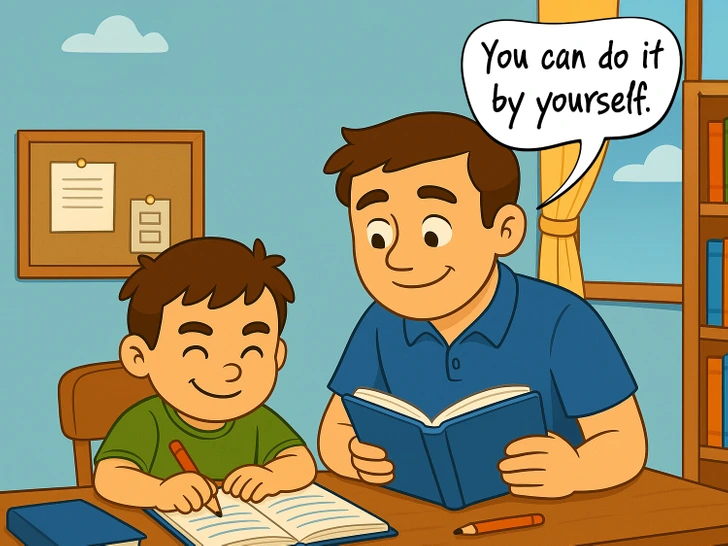
Why? Because kids learn by trying. By failing. By navigating small struggles on their own.
Constantly stepping in robs them of critical life lessons. It tells them: “You can’t handle this without me.” Over time, this message can erode confidence and create dependency.
Support your child, absolutely. But give them space to stumble and succeed on their own terms.
Video:
5 Parenting Styles and Their Effects on Life
Overscheduling: When Productivity Crushes Play
Soccer on Monday. Piano on Tuesday. Coding camp, dance class, math tutoring—it adds up fast. For many kids, life looks like a packed Google Calendar with no room to breathe.
Experts say this “hyper-activity” parenting, often driven by the desire to offer “every opportunity,” can actually rob children of the one thing they need most: unstructured time.
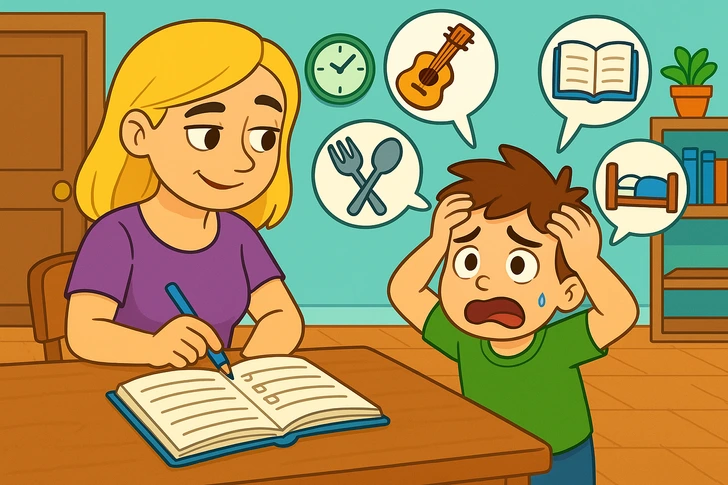
Free play isn’t just fun—it builds creativity, emotional regulation, and independence. Without it, burnout and anxiety start young. Sometimes the best gift you can give your child is an empty afternoon.
Overpraising: The Risk of Raising Praise-Addicted Kids
“You’re so smart!” “You’re amazing!” “You’re the best!”
These compliments feel encouraging, but when used constantly, they can backfire. Experts explain that overpraising may create kids who fear failure, resist challenges, or become overly reliant on external validation.
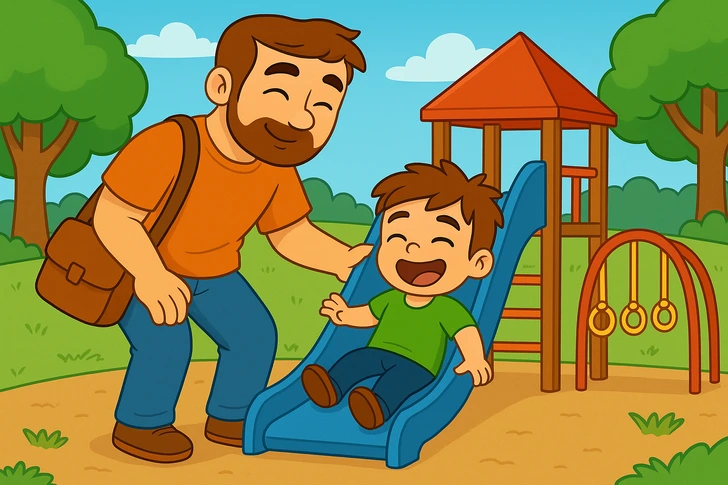
Instead, shift the praise from traits to effort. Say: “You really worked hard on that project,” or “I love how you kept trying even when it got tough.”
This approach nurtures grit and teaches kids that persistence, not perfection, is the goal.
Screen Time as Currency: A Risky Parenting Shortcut
We’ve all done it. “Finish your homework, and you get iPad time.” Or worse, “You didn’t listen? No video games tonight.”
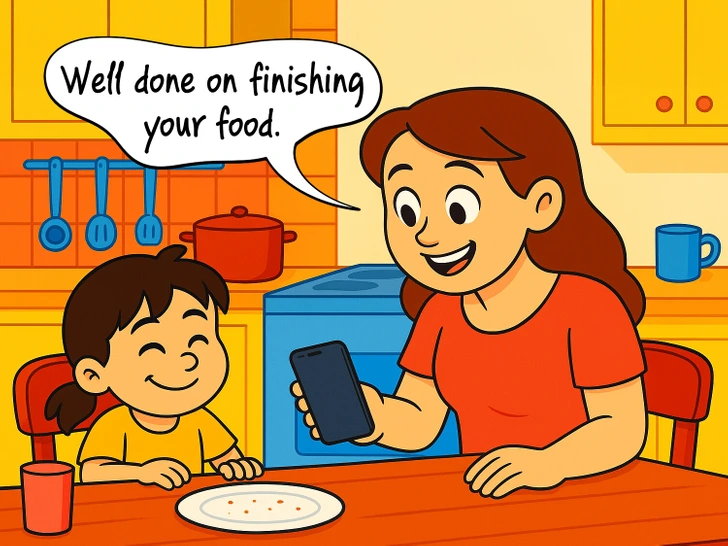
But turning screens into a reward or punishment can elevate their importance and reinforce unhealthy habits. Kids start to view screen time as the ultimate prize—and everything else as filler.
Experts recommend using screens thoughtfully, not transactionally. Better incentives? Choose rewards that build connection or creativity: baking together, a trip to the park, or choosing what’s for dinner.

Lighthouse Parenting: A Great Guideline, If Used with Awareness
Lighthouse parenting encourages parents to act like a guiding light—offering support and safety while allowing children to navigate their own paths.
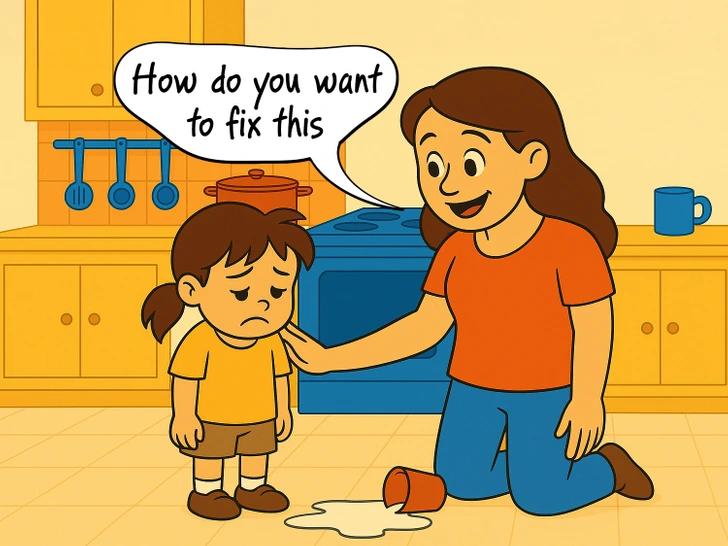
It’s a solid philosophy. But in practice, it can feel vague.
When do you step in? When do you back off? Without clear cues, some parents waver too much or too little, leaving kids confused.
Experts recommend adapting this model to your child’s age and temperament. Stay emotionally available. Be the calm in their storm. But let them steer their own ship when it’s safe to do so.
Parenting trends will always come and go. Some bring wisdom. Others bring pressure. But what matters most isn’t the label you follow—it’s how you show up.
Video: Habits you develop with overly strict parenting ⛓️💥
Be flexible. Be honest. Be willing to shift when something’s not working. Your child doesn’t need a “perfect” parent. They need a real one who listens, loves, and learns alongside them.
So go ahead—question the trends. Trust your instincts. And remember: the best parenting style is the one that fits your family, not your feed.


